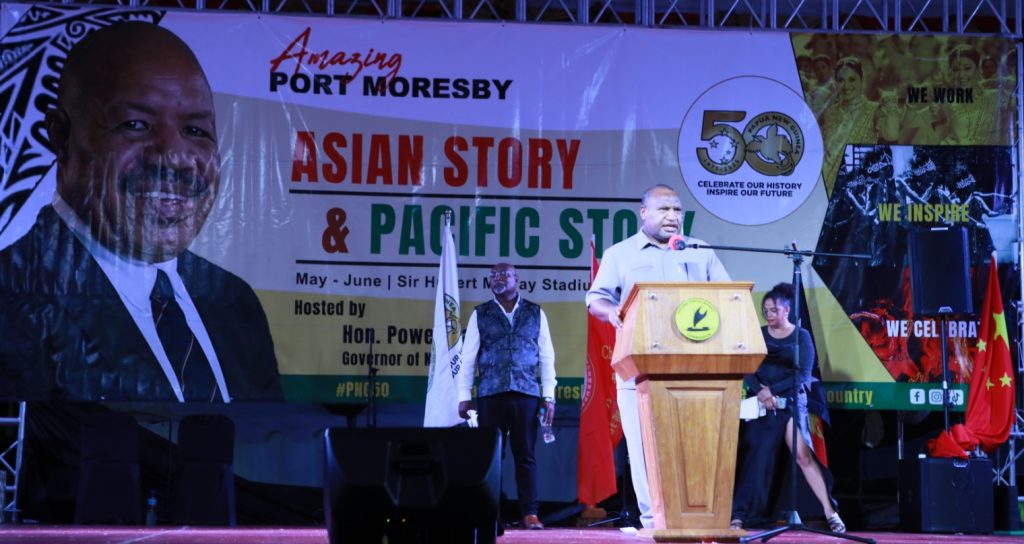On June 15, 2025, the air in Port Moresby was filled with the rhythmic beating of drums, the soaring dance of dragons and lions, the swift magic of face-changing, and thunderous applause. The landmark venue of Papua New Guinea’s capital, Sir Hubert Murray Stadium, was crowded and alive with excitement.
The grand “China Day” celebration was held here, presenting a magnificent cultural feast that spanned thousands of miles and connected civilizations. This event was jointly organized by the National Capital District Government and the China-Papua New Guinea Friendship Association, centering on the theme of “Chinese Food Culture Day.” It integrated traditional Chinese crafts, cuisine, interactive games, and performing arts to offer an immersive Chinese cultural experience to this South Pacific island nation.
The “China Day” celebration attracted the participation of Papua New Guinea’s top officials. The Prime Minister, James Marape, attended the event and delivered a speech. In his address, the Prime Minister highlighted the significant contributions of the Chinese community to Papua New Guinea’s economic and social development over the years. He emphasized the long-standing cultural exchanges and increasingly close people-to-people ties between China and Papua New Guinea. He reaffirmed Papua New Guinea’s firm adherence to the One-China policy and expressed anticipation for deepening pragmatic cooperation with China across various fields.
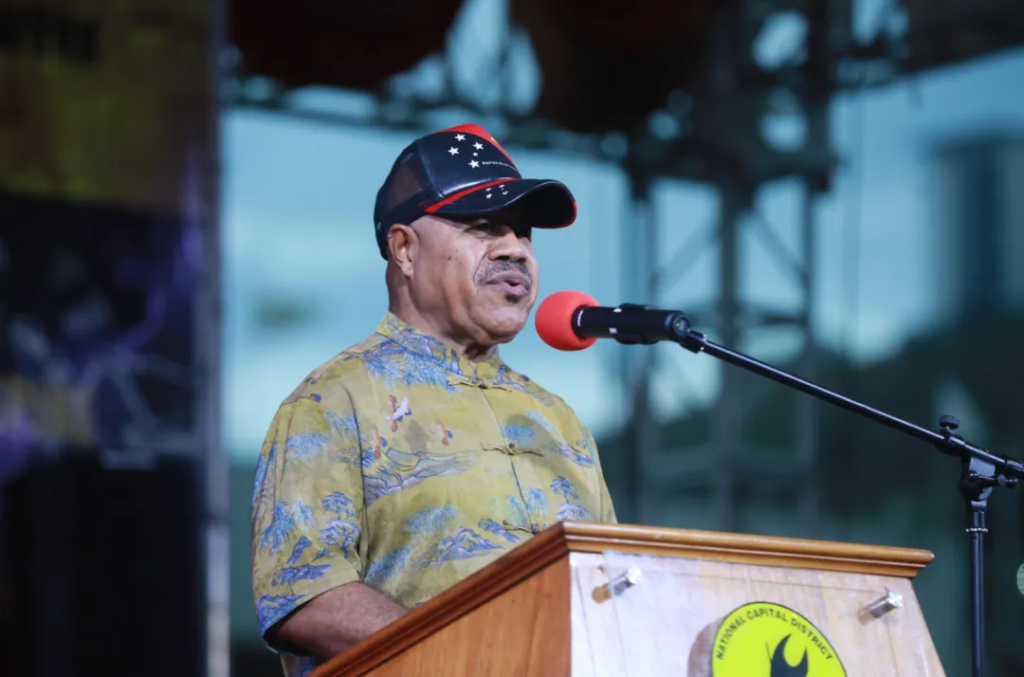
The Minister of Foreign Affairs, Justin Tkatchenko, was present throughout the event. The Governor of the National Capital District, Powes Parkop, also delivered a speech, praising the unique charm of Chinese culture. He fully recognized the positive role of this event in promoting people-to-people connectivity and expressed his willingness to work with China to advance mutual understanding, respect, and friendship between the peoples of the two countries to new heights.
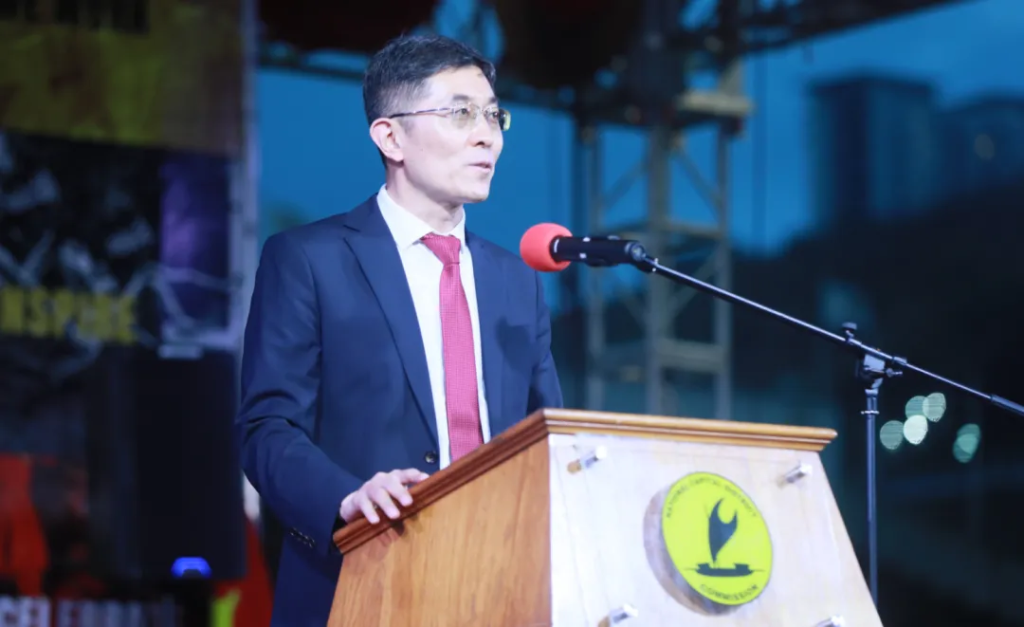
Chinese Ambassador to Papua New Guinea, Yang Xiaoguang, attended the event with several embassy diplomats and delivered a speech on behalf of the Chinese government and the Chinese community. He first extended sincere congratulations to the people of Papua New Guinea on their 50th Independence Anniversary. He introduced China’s Global Civilization Initiative and the significance of the United Nations’ establishment of the International Day of Civilization Dialogue. Ambassador Yang pointed out the deep cultural ties and historical bonds between China and Papua New Guinea. He emphasized that the vast Chinese diaspora has actively integrated into local society and made outstanding contributions to advancing China-Papua New Guinea relations. China is willing to work with Papua New Guinea to summarize successful experiences, continuously expand cultural exchanges, and push the comprehensive strategic partnership between the two countries to new heights.
The event also attracted diplomats from various countries stationed in Papua New Guinea, leaders of overseas Chinese organizations, Chinese expatriates, and tens of thousands of local residents who all gathered to celebrate, creating an enthusiastic and unprecedented atmosphere.
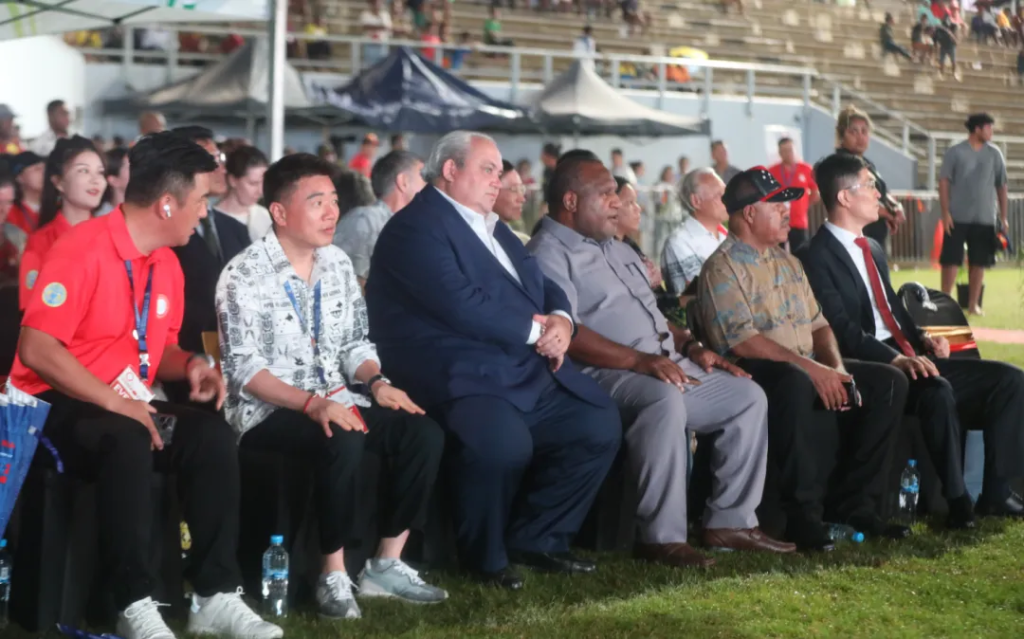
Lin Huanong, Chairman of the China-Papua New Guinea Friendship Association, stated that the “China Day” event was not only a cultural showcase but also a practice of people-to-people connectivity. He expressed gratitude to the National Capital District Government for its support and promotion, as well as to the Chinese Embassy in Papua New Guinea and the Chinese community for their active participation. He pointed out that as the event organizer, the Friendship Association is committed to promoting grassroots exchanges, cultural interactions, and mutual understanding between the peoples of China and Papua New Guinea. He said, “Today we not only brought Chinese cuisine, intangible cultural heritage crafts, and wonderful performances, but also the sincere friendship of the Chinese people towards the people of Papua New Guinea.” Chairman Lin emphasized that the Friendship Association will continue to work hard to build platforms for friendly exchanges at the grassroots level between China and Papua New Guinea, enabling more local people to recognize, understand, and appreciate Chinese culture, and contribute the strength of the overseas Chinese community to the development of bilateral relations.
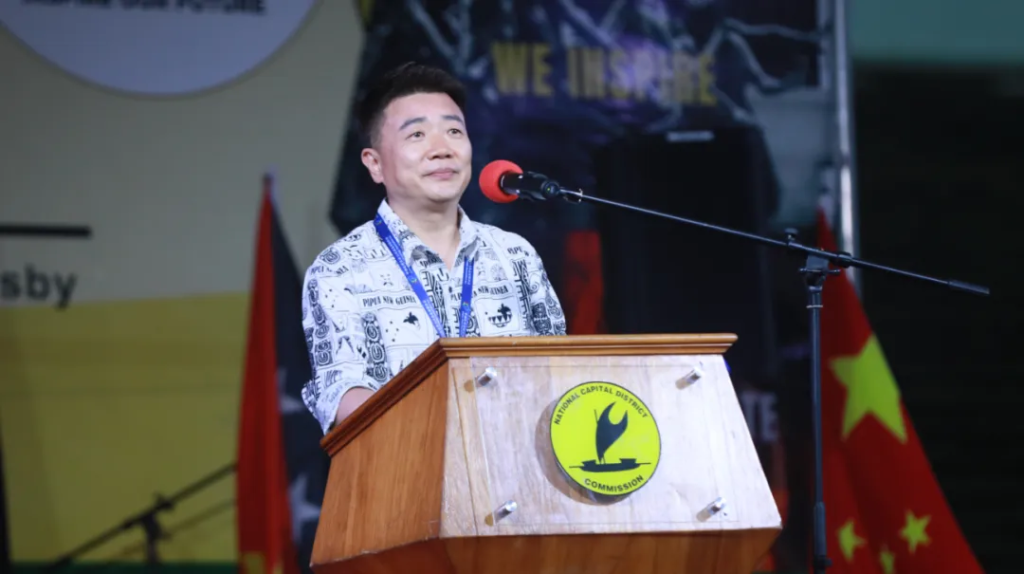
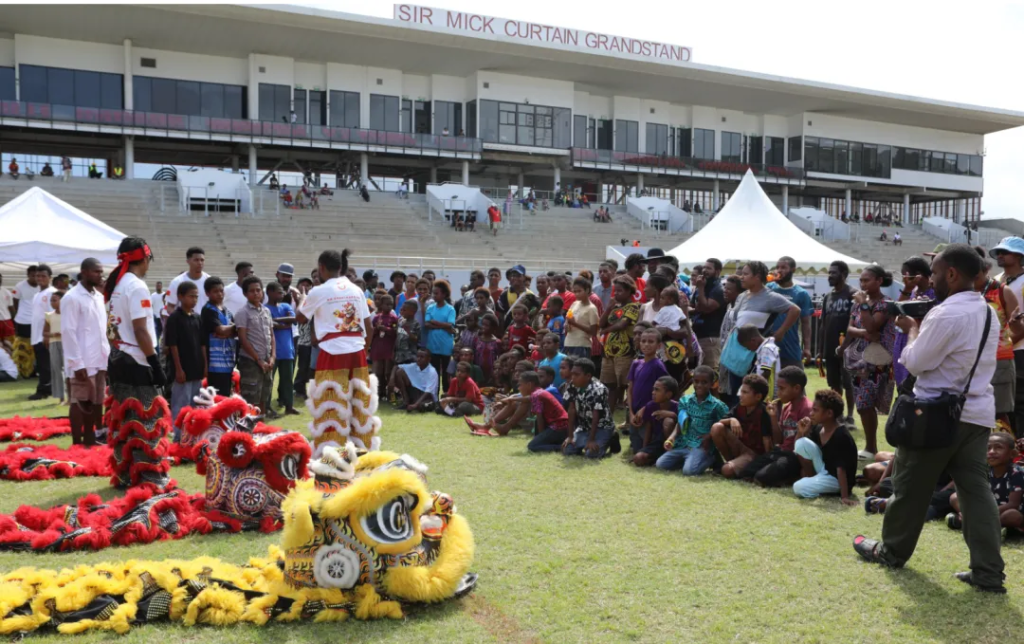
The event lasted from 11 a.m. to 9 p.m., divided into two main sections: during the day, the focus was on Chinese food exhibitions and cultural interactive games, with numerous booths attracting citizens to experience. Community interaction activities such as tug-of-war, three-legged races, and balloon blowing were organized to create a strong festive atmosphere.
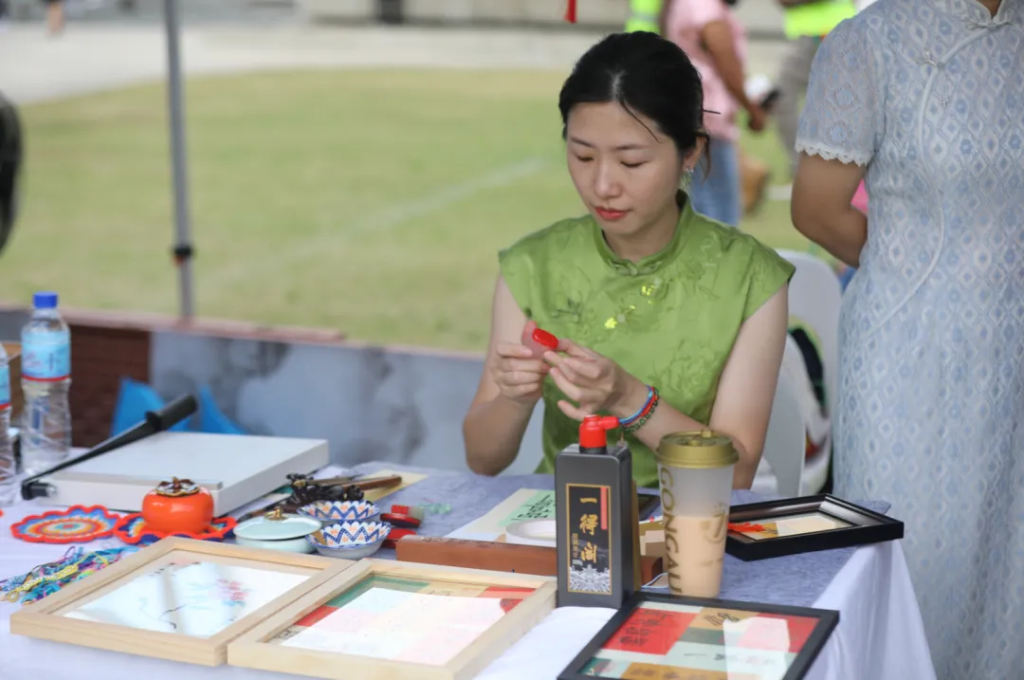
At exactly 5 p.m., the main stage cultural performances officially began, featuring diverse and exciting programs that showcased the unique charm and artistic power of Chinese culture.
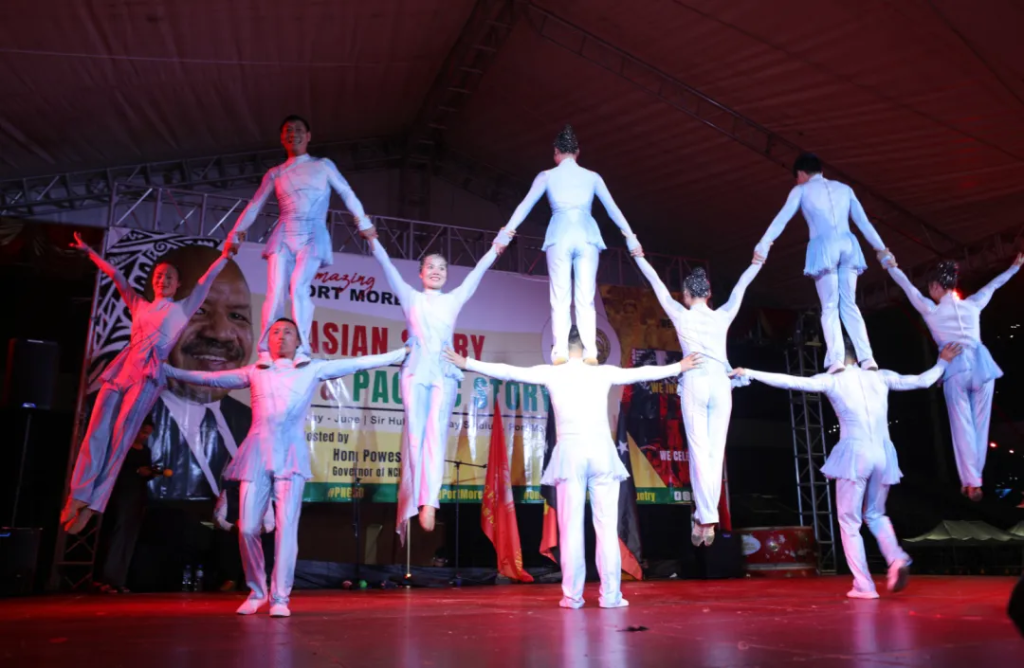
The Shantou Acrobatics Troupe amazed the audience with a series of highly difficult acrobatic acts. Classic performances such as “Climbing,” “Spinning Plates,” “Drum Kicking,” “Hula Hoop,” “Stilts,” “Dream Butterfly,” “Kung Fu and Dance,” and “Human Pyramid” were performed consecutively. The performers demonstrated extraordinary balance and body control, challenging the limits of the human body and presenting a perfect blend of strength and beauty, leaving the audience breathless and full of admiration. The magic show was spectacular, with the magician quickly changing multiple sets of gorgeous costumes and pulling out numerous gifts from a small paper bag, winning rounds of gasps and applause and adding a dreamy and joyful atmosphere to the entire cultural festival.
The intangible cultural heritage segment — Sichuan Opera Face-Changing — not only brought the classic symbolic masks representing “loyalty, treachery, good and evil, beauty and ugliness, wisdom and folly” from traditional Chinese opera to the Papua New Guinea stage, but also for the first time integrated local cultural elements by incorporating the totems and color patterns of Papua New Guinea’s highland tribes into the masks. This creative fusion was a highlight of the evening, symbolizing meaningful cultural integration between East and West.

At the climax of the performance, the face-changing artist interacted closely with VIP guests, including National Capital District Governor Powes Parkop and Foreign Minister Tkatchenko, performing dazzling “face changes” right before their eyes, eliciting enthusiastic applause and cheers. Many guests stood up to applaud and took photos, saying that the moment felt like “witnessing the magical power of Chinese culture firsthand.”
The Chinese Kung Fu performance displayed the spiritual essence of traditional Chinese culture through movements combining hardness and softness in a coordinated manner. The finale, “Dragon and Lion Dance” and “Great Drum Show,” was magnificent and inspiring, perfectly concluding the evening’s program.
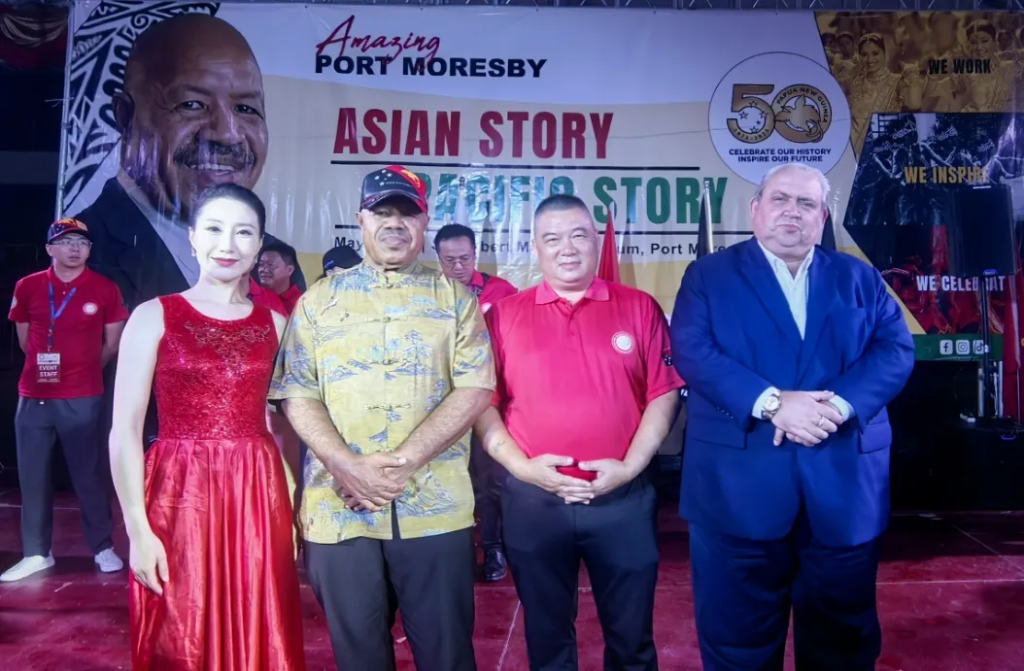
“China Day” was not only a cultural event but also a vivid practice of deepening China-Papua New Guinea friendship and promoting people-to-people connectivity. Through magnificent performances and sincere exchanges, this grand event became a beautiful cultural landmark as Papua New Guinea celebrated its 50th anniversary of independence.

